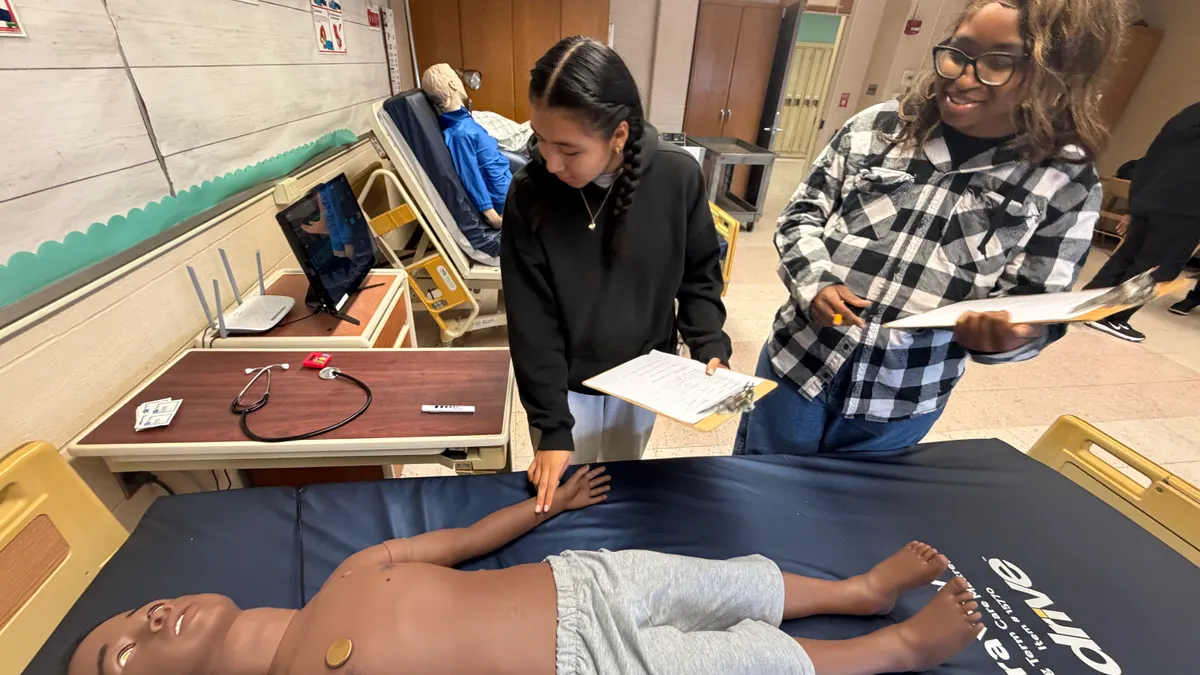Elissa Jane Mastel knows a thing or two about running a startup. The original founder of the Phoenicia Honey Co., she sold the business and used her proceeds to pay off her credit cards and the cost of tuition to earn a master’s from Bard College, ultimately launching an entrepreneurship program at Battle Mountain High School in Edwards, Colo.
The program's 9th-to-12th- grade students delved into everything from time management to production, ending the year with startups selling candles, lip balms and even bath bombs, among other products. She encourages the students to stick to handmade items. The crafting industry is, after all, valued at more than $36 billion, according to the Association for Creative Industries. But Mastel also says homemade items don’t cost a lot to make, and students can create, design and brand a new company along these lines in just a couple of months.
“They learn that it is possible [to start a business,] and the possibilities are attainable,” Mastel, who is moving the program to Glenwood Springs High School starting this coming fall, told Education Dive in an interview. “That’s really exciting.”
Shaking hands and writing business plans
As more people enter the so-called gig economy, working freelance for corporations and essentially running their own small businesses, learning entrepreneurial tools are growing into crucial skills. Not everyone is going to start a $547-billion internet-based social tool out of their dorm room like Mark Zuckerberg.
But entrepreneurial skills are more than learning how to launch a startup success. It’s really about teaching people how to get up each time their idea fails with enough energy and verve to start again, as Steve Jobs did in 1985 after getting fired from Apple, the company he founded.
To that end, Mastel brings in lawyers and business owners who talk about how to start a business, but who also give the students feedback about their own startups: maybe the branding doesn’t work, or a product needs to be bigger. She also sends her students out on mini-field trips so they can meet with other business owners, like one group who met with a candle maker during the past school year to learn firsthand about the process, as well as the ups and downs of running their own company.
“A lot of kids have challenges,” she said. “They didn’t all get along, or they ordered something and the wrong thing arrived, or it didn’t get there on time and they had to work as a team and figure it out. For me, that felt like my favorite teaching moment for the year.”
For schools that don’t have a teacher who is able to take the reins on a program, aligning with an outside group can be helpful. The Network for Teaching Entrepreneurship (NFTE) works with K-12 schools to weave Common Core-aligned curriculum around entrepreneurial tools. And Zvia Schoenberg, director of NFTE’s New York Metro region, says 25% of students who have gone through their program have actually launched their own business.
While not free — schools pick up 30% of the cost — the program actually focuses less on launching a startup and more on building soft skills like self-reliance, flexibility and adaptability. NFTE is working on a new program, which it hopes to pilot this summer, that would not only measure the development of the skills but also issue reports on their growth to students.
“Kids are already entrepreneurs,” Schoenberg told Education Dive in an interview. “We give them the language and tools to actually launch legitimate business, in their communities.”
Teaching tenacity
Bob Dorf, author of “The Startup Owner’s Manual,” believes some entrepreneurial skills can be taught, from writing a financial plan to learning how to shake someone’s hands while looking them in the eye. What he says is difficult to teach are those elements that drive entrepreneurs to keep going no matter what.
“Most critical is the heart,” Dorf told Education Dive in an interview. “Having tenacity and relentlessness, which is so vital. It’s either there or it’s not, although you can tease it out a bit.”
Dorf is co-teaching a summer program this year in Connecticut called the Startup Summer Camp. The course is open to high school and college students, helping them wherever they are on their path to launching a new business — whether they just have an idea or already have customers and want to accelerate their growth.
Mastel’s students don’t really fit into the latter mode, but one of her students last year rebranded his candle-making startup and is now selling it around Vail, Colo., as a luxury product in farmers markets. While a full-fledged business isn’t necessarily her end game for all her students, she’s proud of what they’ve all learned — the ability to nurture an idea into a company all on their own.
“I did a self-reflective assignment at the end of the program, and they feel that because they are learning for themselves and figured out things on their own, their success and learning is so much greater,” she said. “The coolest most exciting thing is their discovery that it is possible to launch a business in the course of a semester.”



















